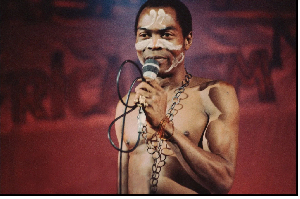Situations in our environment affects us, directly or indirectly. As Africans we are brought up to be resilient.
Our men are developed not to show emotions in times of challenges.
Our women are made to believe that is okay to tolerate anything.
These traits makes it difficult for us to express our emotions in troubled times.
For some of us, Emotions are linked to weakness.
As humans, we have every right to express our emotions. Unexpressed emotions can cause psychological problems which may lead to physical health problems. The most important thing is to learn to express emotions in a safe way so we don't self distract or cause others harm.
Find a trusted colleague, a spouse or friend who can listen to you complain. Say everything you feel about the situation — the good, the bad, and the ugly. Don’t hold back. Be careful who you choose to vent to, though.
You don’t want to go to the friend who just riles you up. Find someone who has a calming presence and will ask helpful questions.
“suppressing your emotions — deciding not to say something when you’re upset can lead to bad results.”
If you don’t express your emotions, they’re likely to show up elsewhere.
Psychologists call this emotional leakage. “Have you ever yelled at your spouse or child after a frustrating day at work—a frustration that had nothing to do with him or her? When you bottle up your feelings, you’re likely to express your emotions in an unintended way. Suppressing your emotions is associated with poor memory, difficulties in relationships, and physiological costs (such as cardiovascular health problems),”
Prevent your emotions from seeping out — in the conversation or at home — by getting your feelings out ahead of time. That way, you’ll be more centered and calm.
Talk about how Coronavirus is really affecting you. Vent it all out and improve your mental wellbeing.
By: Clinical Psychologist, Dr. Annie Gaisie
Email- dovewomen@gmail.com
Join our women Empowerment project via- 00447486286143
Facebook page - African women community project
Opinions of Tuesday, 7 April 2020
Columnist: Dr. Annie Gaisie
We are in troubled times; Coronavirus is real and has come with huge effects
Opinions














